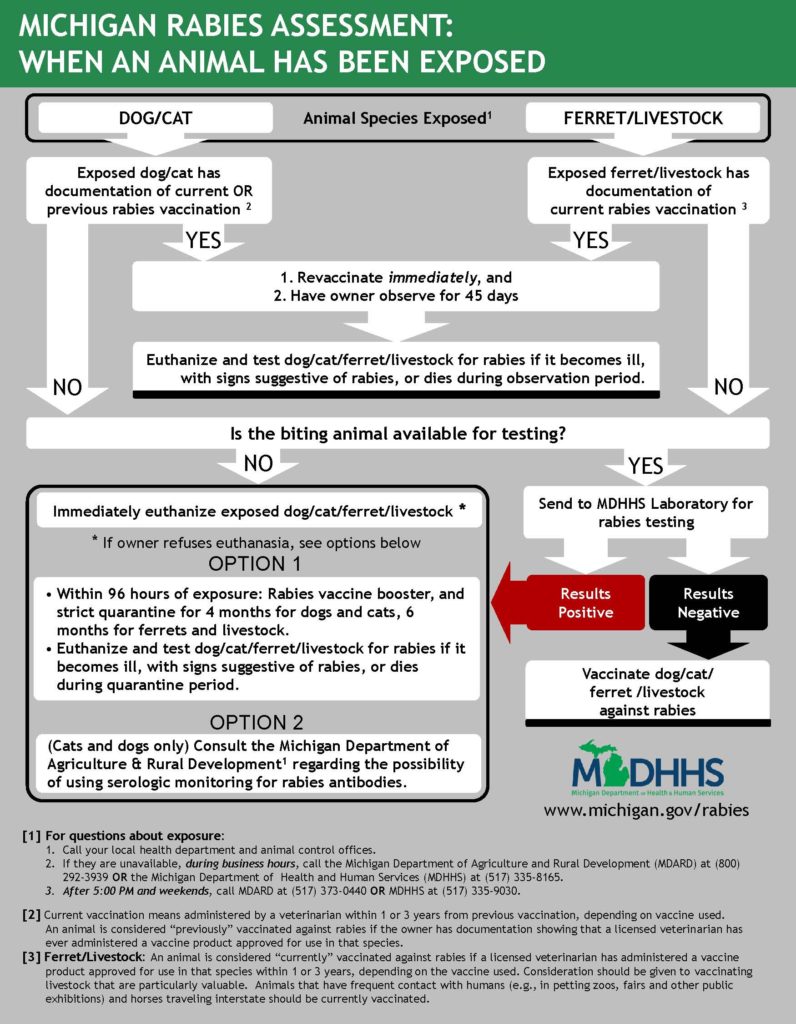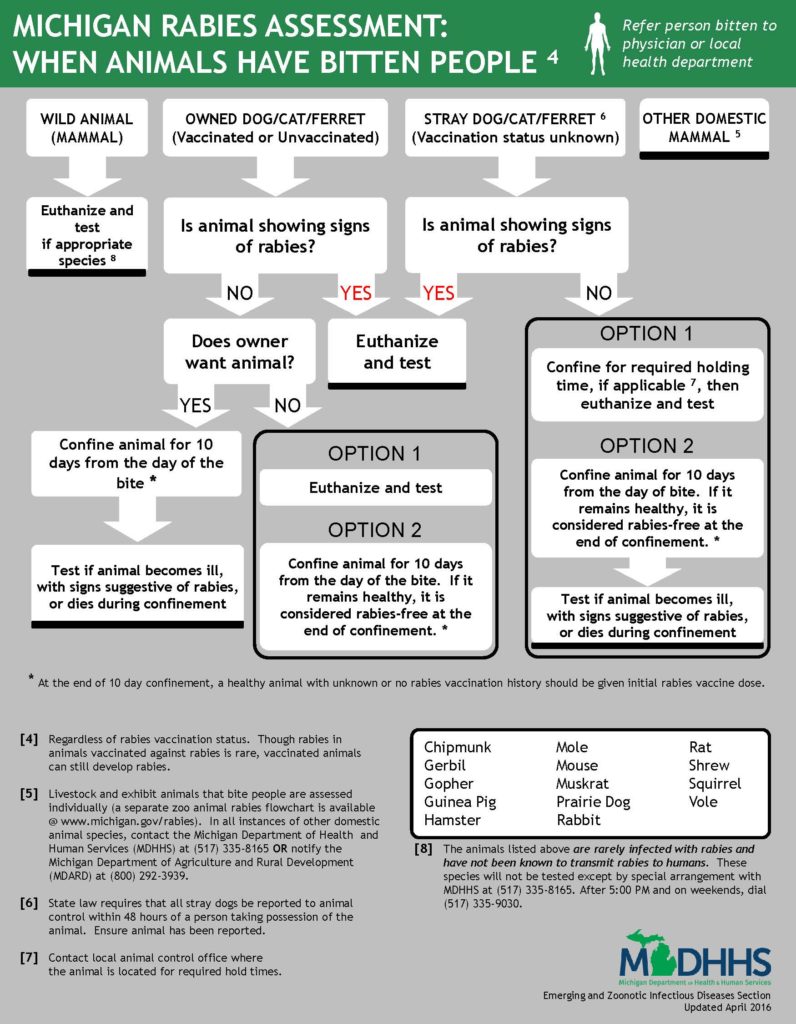
It’s that time of year again where people and pets spend a lot of time outdoors. It’s also a good time to prevent rabies.
HERE’S THE FACTS:
- Rabies is found in the saliva and nervous system of an infected animal. The virus is spread from animal to animal, or animal to person by a bite, scratch, or mucus membrane (eye, nose, mouth, open wound) contact with the infected saliva.
- Bats, raccoons, skunks, and fox are the primary source of rabies in the United States. In Michigan, bats and skunks are the most well-known animals to carry the virus.
- A higher number of rabies cases occur during warmer months because animals and humans are more active during the spring and summer.
- Once an animal or a human starts to show symptoms of rabies, death is inevitable.
- In 2009, a 55 year old man died of rabies due to a bat strain of the virus. The patient did not seek treatment following an exposure to a bat months earlier. Prior to this, the last human reported case in Michigan was in 1983. A bat bite is also the suspected cause.
Rabid Animal Symptoms
Foaming at the mouth and erratic behavior are two of the most widely known rabies symptoms (Furious Rabies); however, sick animals can display unusually passive behaviors as well (Dumb Rabies).
Common rabid animal symptoms:
- “Depression-like” behavior and retreat to isolated places.
- Overly friendly to humans, especially wild animals.
- Signs of paralysis such as a drooping head, paralyzed hind limbs, abnormal facial expressions, and/or a sagging jaw.
- Extreme excitement and aggression such as attacking stationary objects or other animals and/or gnawing and biting their own limbs.
Residents should take the following precautions to protect themselves, their family members, and their animals from rabies:
- Never handle unfamiliar wild or domestic animals, even if they appear friendly
- If bit, wash thoroughly with soap and water and seek immediate medical attention.
- Keep doors closed and housing vents well protected against animal entry.
- Do not leave pet food or table scraps outside where they will attract wild or stray animals.
- Keep vaccinations current for all dogs, cats, and ferrets. Do not let your animals play with wildlife. Consult your veterinarian about vaccinations for horses and other livestock.
- Call animal control to remove any stray or to report any sick animals in your neighborhood.


Quick Links
DHD#10 – Animal Bites/Rabies
Michigan Department of Health and Human Services
Michigan Department of Natural Resources
Centers for Disease Control and Prevention

